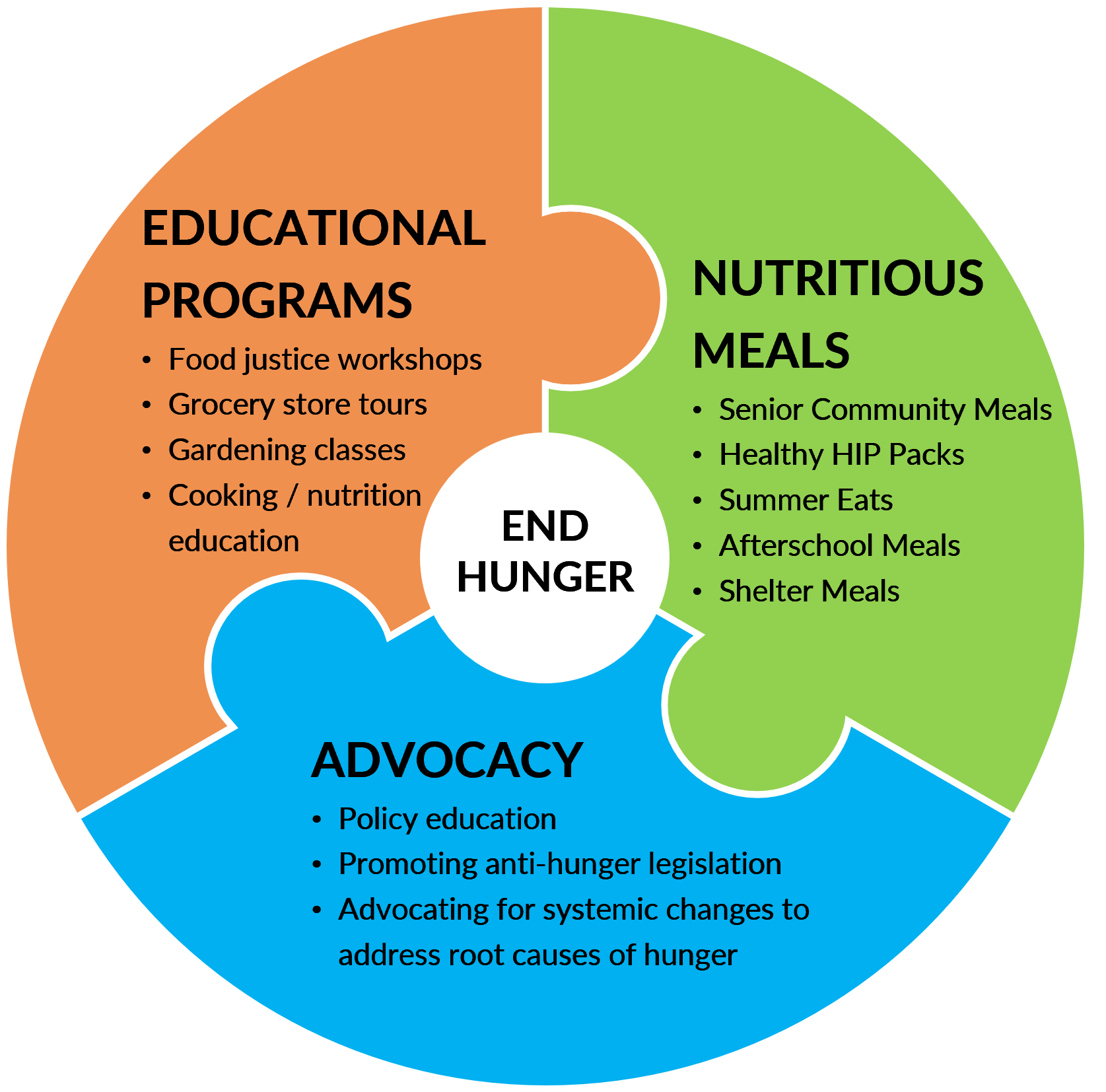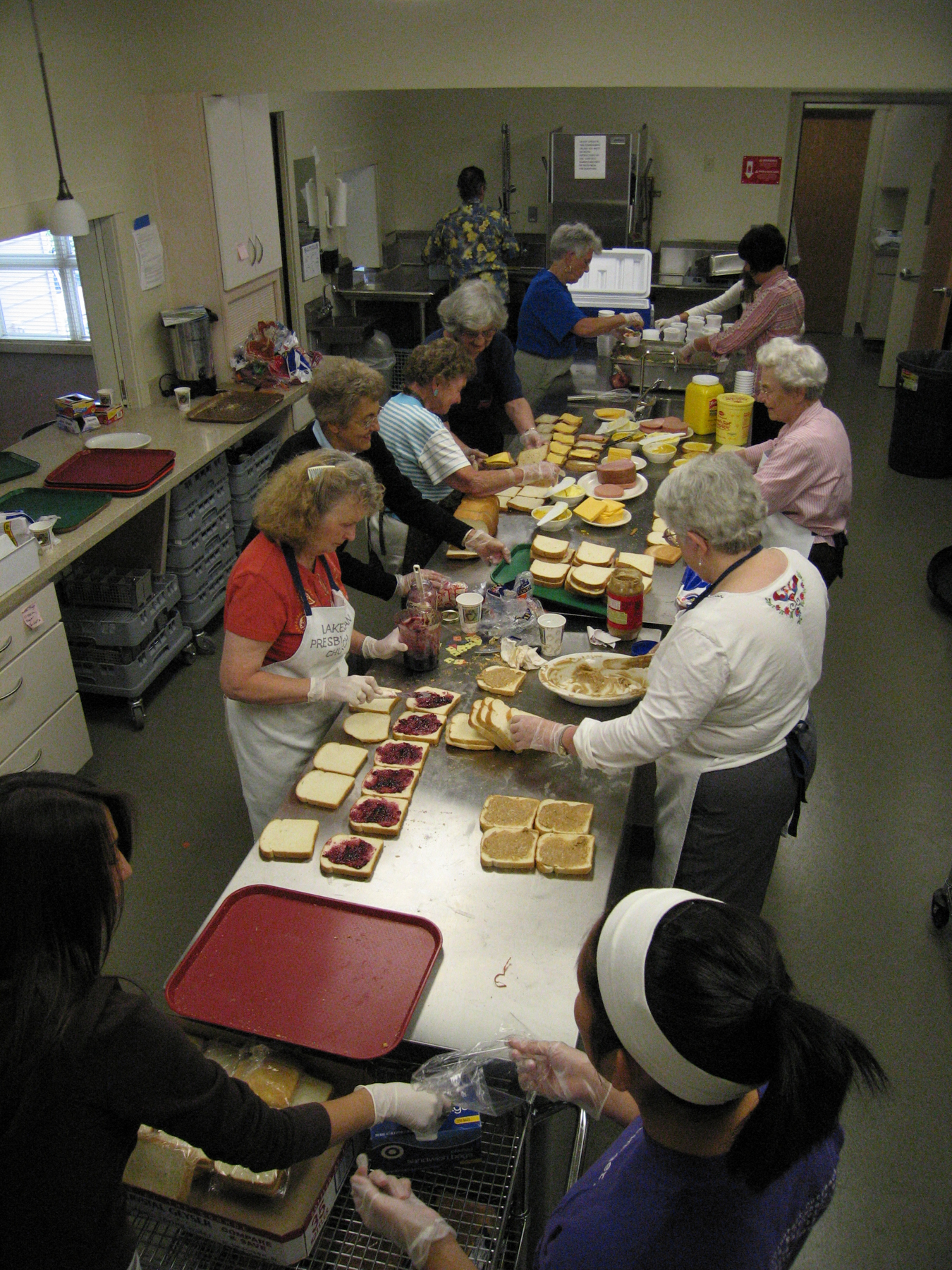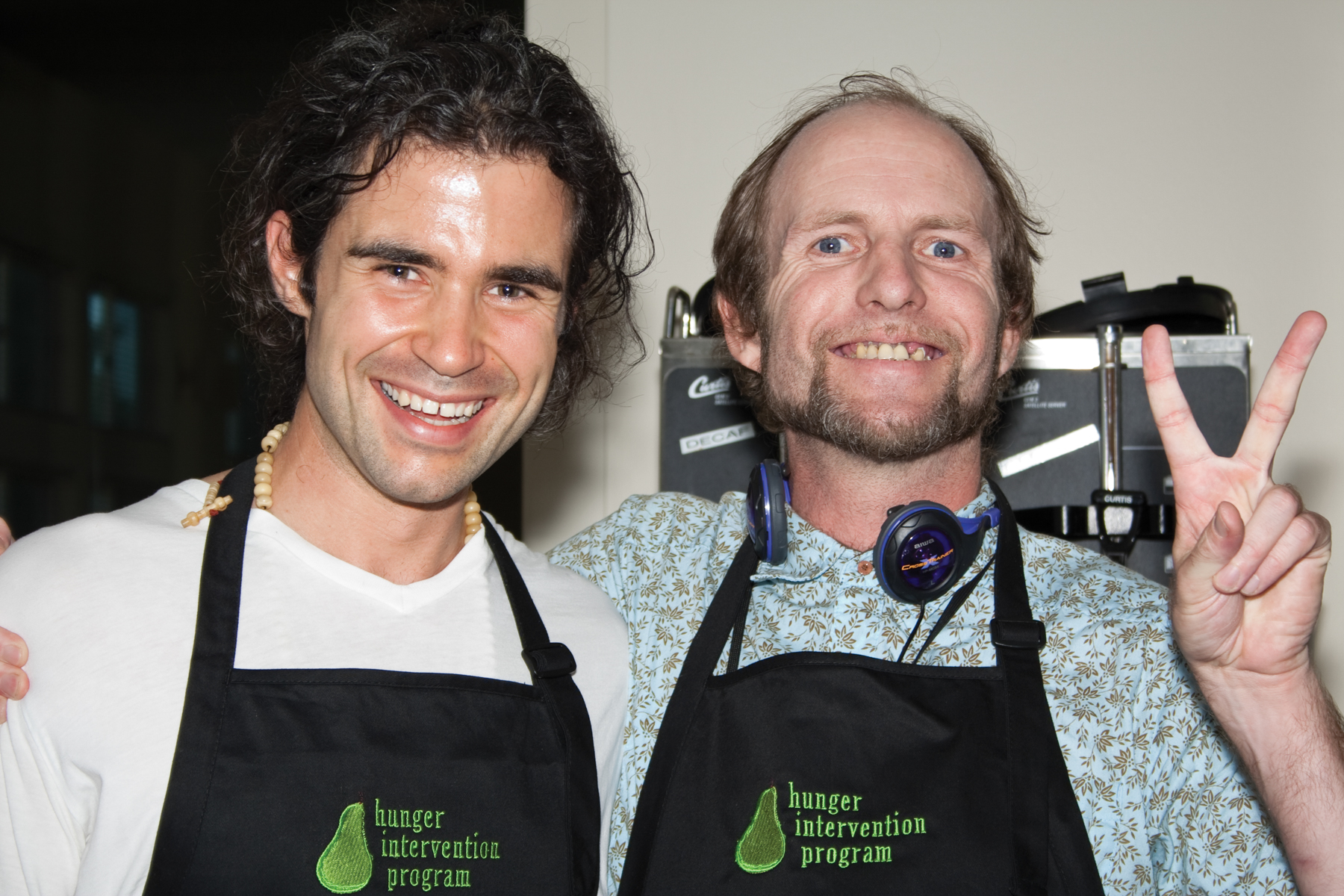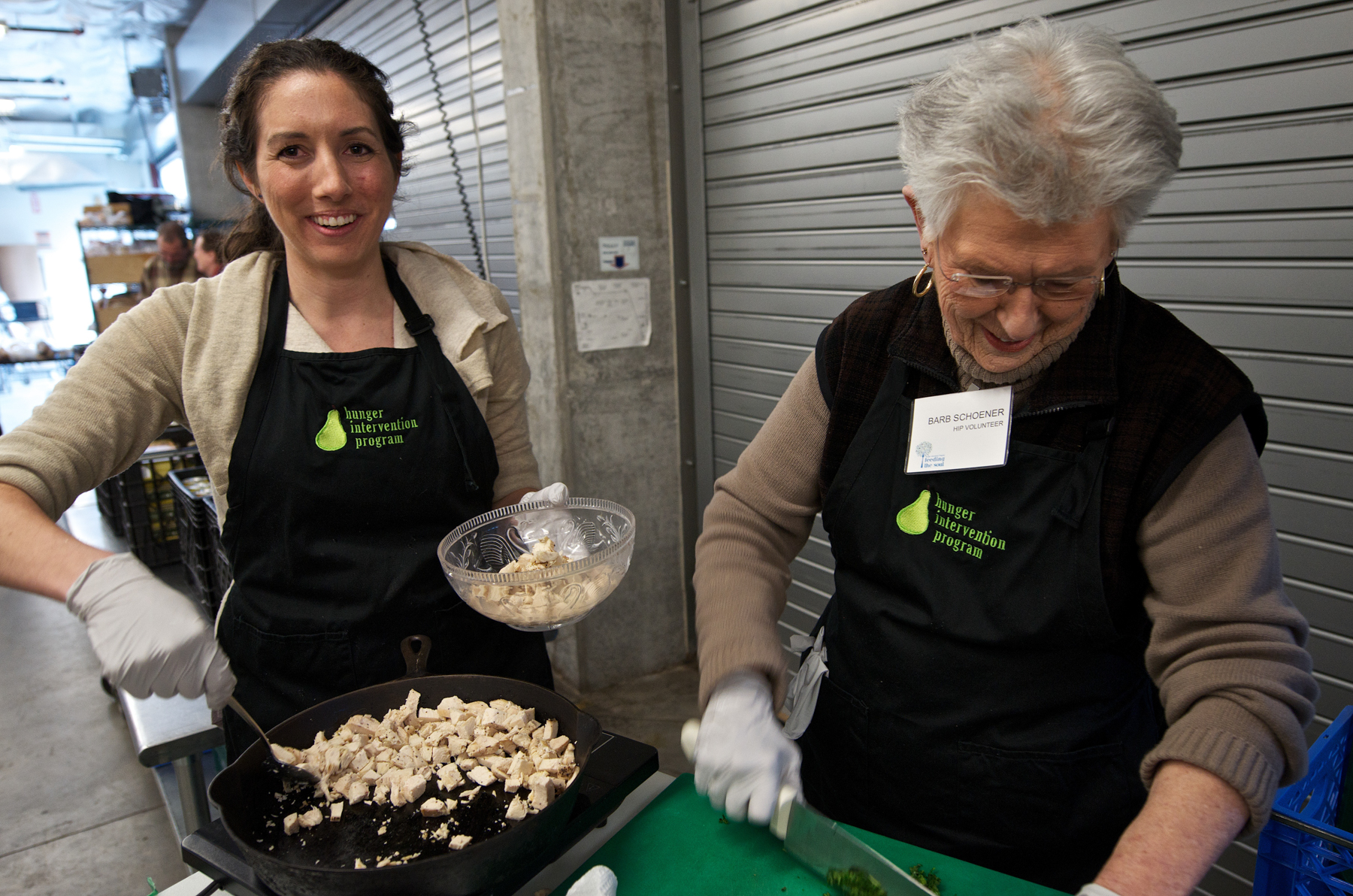Mission, Vision, History
Mission
The mission of the Hunger Intervention Program (HIP) is to increase food security for underserved populations in North King County through nutritious meals, educational programs, and advocacy.
Vision
Nutritious food that is accessible to everyone in our community.
Our Approach
HIP’s strategy to achieve its mission and vision has three primary pillars:
- Direct food support in the form of nutritious meals to people in need;
- Cooking and nutrition education classes to help create long-term behavioral change; and
- Food justice workshops and legislative advocacy to organize and push for policy-level changes to address the root causes of hunger.

History
Hunger Intervention Program (HIP) has always championed the right to nutritious food. It started in 1998 with a group of volunteers who wanted to bring healthy, safe, and wholesome meals to those in need by serving Friday lunches in downtown Seattle. From 2007 to 2010, HIP’s volunteers served a daily breakfast to clients at a major downtown Seattle shelter. During this time, HIP’s volunteers were awarded multiple Mayor’s End Hunger Awards for their commitment to feeding the Seattle community. In 2008, HIP became a registered 501(c)(3) nonprofit.
HIP transitioned its daily breakfast service up north in 2010 in order to emphasize the issues of hunger among the homeless and low-income residents of the Lake City community. In 2011, HIP’s first full-time staff member was hired, and the Healthy HIP Packs program was created to serve nine children at John Rogers Elementary. In the years that followed, HIP created the Summer Meals, Senior Community Meal, Afterschool Snacks, and Shelter Meals programs, and added nutrition education and anti-hunger advocacy as pillars of its work. Today, HIP serves over 10,000 meals a month to children and families, seniors, and unhoused individuals across North King County.
To achieve its vision of making nutritious food accessible to everyone in our community, HIP collaborates with community partners to create programs that aim to empower low-income and other economically and socially disadvantaged individuals. HIP does this by providing nutritional meals and nutrition education in a dignity-preserving fashion where people’s cultures are celebrated and respected.



